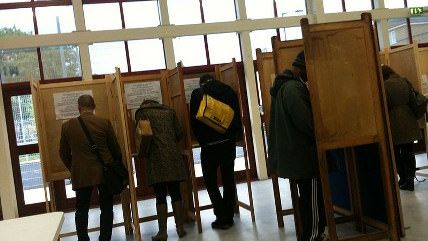The Real Vote Fraud
As a cure for fraudulent voting, a stringent voter ID law is like prescribing morphine for a hangnail. But as a cure for Democratic voting, it's hard to beat.

Many years ago, as a college Republican, I spent one summer in Austin working for a candidate in a special election for the Texas senate. My hometown was a liberal enclave with many college students—unwashed, longhaired, pot-smoking students, it seemed to me—who were predominantly Democrats. The more students who came out to vote the less likely our candidate was to win.
But our campaign strategists came up with a plan. They sent mailings to all the registered voters in precincts near the campus. Many cards came back because the addressee had moved, as college students often do. Voters no longer at the address on file with election authorities were not eligible to vote.
On Election Day, a fellow campaign worker and I went to a polling place to monitor voters. When they gave their names, we checked to see whether their mailings had come back. If so, we lodged an objection. The voters affected were not pleased.
If we had been asked to defend our actions, I imagine we would have come up with something about upholding the law and assuring the integrity of elections. But the people running the campaign never said anything like that.
What they said was that this was a great way to reduce the number of people voting for our opponent.
It didn't help, because he was too popular. But my superiors were not the last Republicans to figure that if you can't get people to vote for you, you can try to keep them from voting at all.
One GOP-dominated state after another has adopted new voter identification requirements in the name of preventing election fraud. In 2008, the U.S. Supreme Court upheld an Indiana law requiring anyone who wants to cast a ballot in person to show a driver's license or another approved photo ID.
The odd thing is that two judges who voted to uphold that law later had second thoughts. Federal appeals court Judge Richard Posner said last year he was wrong. Retired Justice John Paul Stevens, who wrote the Supreme Court opinion, says the court lacked the evidence it needed to overturn the law but now believes the dissenters had the better of the argument.
Fortunately, the legal issue is far from resolved. A federal court in Milwaukee recently struck down a Wisconsin voter ID law. In the Supreme Court case, Judge Lynn Adelman said, those challenging the law failed to provide enough evidence that it put an undue burden on the right to vote. In this case, he said, those challenging the law had evidence galore.
He found that 9 percent of the registered voters in Wisconsin don't have the IDs required by the law. In Milwaukee County alone, 1,640 voters have neither an approved photo ID nor any of the documents they need to get one. Poor and minority voters are especially likely to be prevented from voting by the new obstacles.
The burden might be tolerable if voter impersonation were a big problem. In fact, said Adelman, the state "could not point to a single instance of known voter impersonation occurring in Wisconsin at any time in the recent past." The state attorney general created an election fraud task force to find violations in the past three elections. It might as well have been looking for Sasquatch.
No one should be surprised that this type of chicanery hardly ever happens. Someone caught impersonating a Wisconsin voter may go to prison for three years. The risk is not balanced by a reward, because it's extremely unlikely that the fraudulent ballot would change the election outcome. Given all this, the judge wrote, "A person would have to be insane to commit voter impersonation fraud."
There is nothing unusual about Wisconsin. When Pennsylvania enacted a voter ID law, it was able to cite zero cases of voter impersonation. Ditto in Indiana. Texas Attorney General Greg Abbott brags of successfully prosecuting 50 cases of election fraud. But the list his office sent me included only three cases in six years of someone being charged with voter impersonation at a polling place.
Republicans seem to be willing to go through an enormous amount of trouble to combat a crime that is highly rare and uniformly ineffectual. As a cure for fraudulent voting, a stringent voter ID law is like prescribing morphine for a hangnail. But as a cure for Democratic voting, it's hard to beat.


Show Comments (120)